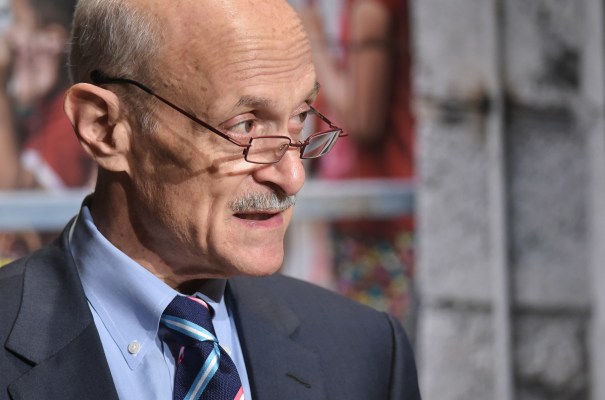At a panel discussion today at the RSA conference in San Francisco, Apple found two unlikely allies when the former heads of the NSA and Homeland Security threw their support behind encryption technologies.
Michael Chertoff, who was the head of Homeland Security under presidents George W. Bush and Barack Obama, and who helped author the USA Patriot Act, and former NSA head Mike McConnell both expressed strong support for encryption technology during a panel called “Beyond Encryption: Why We Can’t Come Together on Security and Privacy — and the Catastrophes That Await If We Don’t.”
Chertoff was a surprisingly spirited advocate of encryption suggesting at several points during the discussion that weakening it could put the economic engine driven by the Internet at risk, while placing an undue burden on the private businesses who are charged with making sure that information flows smoothly and safely on the Internet.
“If we ask private sector to be in control of security, then we have to allow them to have tools to carry out that mission,” he said. Further, he worried that weakening encryption could limit technological development.
“We need to make sure that as technology develops that policies and rules and laws don’t stifle technology,” he said.
He believes that trust fuels the Internet’s economic engine and that weakening that trust puts those economic benefits at risk. “If you lose trust, you get to a tipping point where people flee to something else,” he said. As that happens, we could inadvertently fragment the internet as different countries go their own way in the name of privacy.
“If we don’t come to an agreement with the majority of the world [around privacy], we could end up with multiple internets and lose the value of an interconnected world,” he said.
Meanwhile Mike McConnell, former head of the NSA, who is currently senior executive advisor at Booz Allen said if he were advising the FBI on the Apple case, he would tell them that they chose the wrong test case.
Instead of bringing the case to court, McConnell suggested a more reasoned approach — forming “a legislatively directed commission of leading experts to have an informed dialog with all clearances [required] to make reasonable recommendations.”
He believes that the public and Congress lack the expertise to make informed decisions about cyber security matters, and that by bringing together a group of experts, it could help Congress make more informed decisions.
Consider that two men who once advocated limiting privacy in the name of security are strongly defending encryption technology and suggesting that weakening it puts the entire Internet at risk. It seems that Apple has some powerful if unlikely allies when it comes to supporting encryption as a way of protecting data on the Internet — and that’s certainly an unexpected outcome of this debate.

